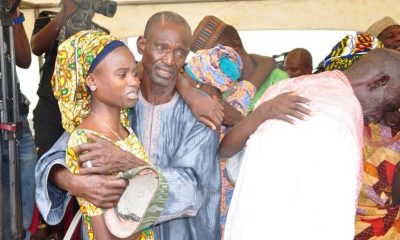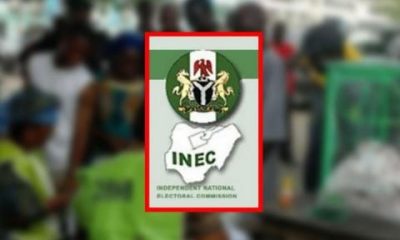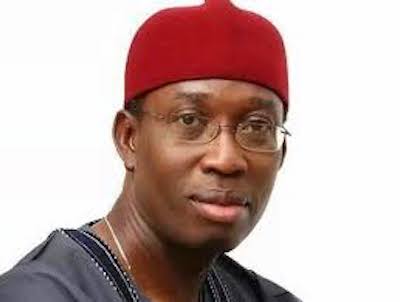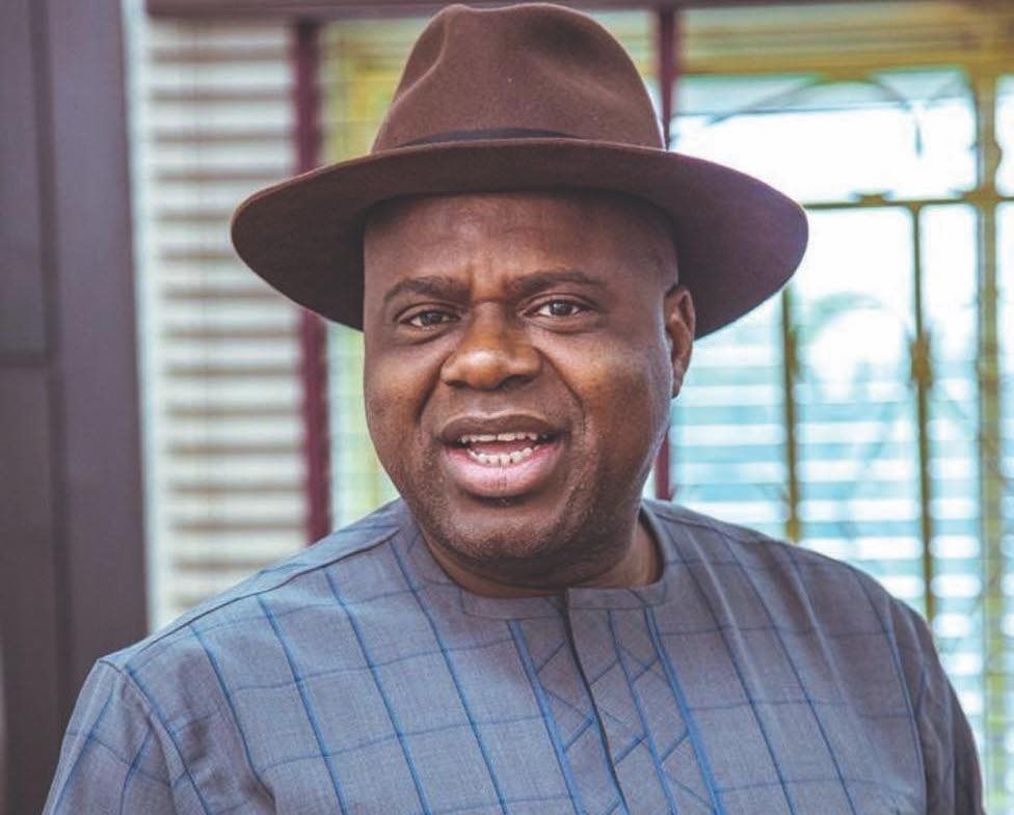Education
Commencement Speech AUN 2023
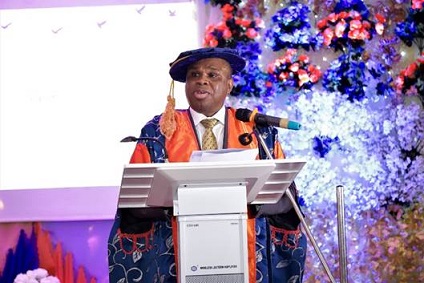
I am highly honoured by the opportunity to deliver the 2023 commencement address of this highly respected University. Many thanks to the Founder and former Vice President of the Federal Republic of Nigeria, H.E Atiku Abubakar, for the wisdom of establishing this university and making it a beacon of hope for the minds willing and able to explore the unknown.
I thank him for his vision in setting up a university of this excellence and also in the decision to focus the University on development issues. His support for education in Nigeria is legendary. In addition to this University, I am also aware of the AUN Academy as well as his advocacy work for improvements in the education sector overall.Special appreciation to Senator Ben Obi, members of the Board of Trustees and members of the Governing Council for this privilege and for finding me deserving of the very high honor of the award of an honorary degree of Doctor of Human Letters of this Prestigious University.
To you, the graduands, whom we are all gathered here to celebrate, I say “Congratulations”! I am sure your years at this great University have severely tested your talents, perseverance and your commitment to hard work. You sit in this hall today, hooded, because you all passed the tests. Now that it is all over and you step into a new beginning, I am sure some of you will do so with trepidation, unsure of what the future holds. That is understandable because as you look into the horizon, you see thickening clouds of uncertainty and few rays of hope. Wars, hunger, violence, terrorism, climate change, poverty and overall economic malaise define your daily encounter with the news and present a most daunting environment for any young graduand. As difficult as it may sound, I want you to know that the situation is not unique to you. I want you to know that like the legendary Egyptian bird, Phoenix, that got burnt and rose from its ashes, you too can emerge as a star out of the violent cacophony of today’s turbulent world.
As you ponder your future, I will like you to listen to my own story. Forty years ago, back in 1983, I was like you, a young graduate full of life, ideas and aspirations. I also graduated into a Nigeria that was going through its worst economic crisis in decades. The economy was in a very bad shape. A crash in oil prices exposed macroeconomic management weaknesses, which tipped the economy into recession; the economy contracted by more than 10%; there was massive unemployment, inflation soared as import licensing and, price controls led to unprecedented scarcity of basic supplies. Citizens queued for hours to buy simple cooking oil, for instance. The environment was most daunting for a young man fresh out of school, with big ideas about how to contribute to society.
In the midst of the challenges, I saw an opportunity and invested my time and energy in it. I chose not to be controlled by development I had no control over. I charted my own course in the midst of the turbulence. And today, I stand before you, 40 years later as President of African Export-Import Bank, a bank that has become a critical piece of Africa’s financial architecture. So, dear graduands, I want to assure you that you can be all you want to be; you are the author of your destiny, dream big dreams and allow your aspirations to roam. You will soon find that as you turn the corner of any adversity, an opportunity may beckon.
And the opportunity for you today may be found in the story of my life I just narrated. If you listened carefully, you would have noticed that, as it was forty years ago, so it is today. I am sure you will be wondering whether time stood still in Nigeria.
Over-dependence on crude oil was at the root of the economic crisis in 1983; it is the same today. And therein lies the opportunity, the chance to contribute in building an economy that is diversified, resilient and dynamic so that in 40 years’ time we will have a transformed, more modern society.
The African Continental Free Trade Agreement and Digital technology have provided platforms that are helping to unleash the power and creativity of our youth, even in the midst of difficulties. A quiet revolution that will redefine our future is in the offing.
So, graduands, you have your destiny in your hands; your future is yours to shape. American Philosopher, Eric Hoffer, once wrote that those with skills to move mountains do not need the faith that moves mountains. Your training in this university has prepared you for the future. There is no “mountain” you cannot move; there is no challenge you cannot overcome.
Today, we must celebrate not just the end of your most recent academic journey, but the beginning of a life-long commitment to making a difference. The core of my message today is focused on the latter. Making a difference means more when you are from a continent where young and able people believe that they have no better option but to attempt to cross the Mediterranean Sea in search of greener pastures, despite the high probability of death. It means more when you are from a continent that is home to more than 60% of the world’s arable land but can’t feed itself. It means more when we are home to much of the world’s remaining mineral resources but account for only 3% of global trade and 3% of Global GDP. It means more when you are from a continent that accounts for 17% of the world’s population and 66% of all young people globally yet contributes almost 40% of the global poor. Making a difference means abandoning all those evils that hold us back as a people. You must say no to tribalism, religious bigotry and extremism, greed and selfishness. You must always strive to rise above the self and protect the collective interest because in an interconnected world, you will prosper when the group prospers.
You have all acquired an important asset, namely education. However, I would like you to see education from perspective offered by the Irish poet William Butler Yeats who noted that “Education is not about filling a bucket but lighting a fire”. I hope that your time over the last few years at AUN has lit a fire in you, a fire to go and change the world, starting with Africa. I would also like to emphasize that education is not a finite destination, rather it is a lifelong pursuit.
While hard work and education are critical, they are not enough. I can’t think of anything more important than love for country and continent. It is through the love for country and continent that we develop the deep passion that is required to drive change.
I would also like to remind you that those who fought for the independence of African nations, did so as young people. As I said in another speech, Kwame Nkrumah and his contemporaries “invested their youth in that project. Instead of the luxury of serving the colonial masters, they chose deprivation that came with agitation for independence; instead of the safety that subservience would have assured them, they chose the danger that littered the path to political independence; instead of living for the present, many sacrificed their present for a better future for all Africans”.
While they won the battle for political independence, which you and I enjoy today, we are deep into another struggle, the fight for economic independence. How would we fight this raging battle? The leaders of my generation have made efforts in this regard but have had limited success. It is You, the educated African youth in this arena and similar universities around the world, that can help us to eventually win the battle. And it is a battle we must engage in and win as it will define the future of the African. Otherwise, we will remain at the periphery of the global scheme of things. It is because of the new knowledge economy that Apple has a valuation today that is almost the size of Africa’s GDP. And as Artificial Intelligence and other technology gain ground, it is you, our youth that will ensure that this time, the country is not left behind and that we take control of our destiny and compete effectively globally. In this new world we are in, a new struggle is raging.
As I had said in the past and repeat here in quote “A revolution is sweeping across the African continent without bloodshed or conflict. It is peaceful and will fundamentally alter our world, shatter old assumptions and reshape our lives. It is easy to underestimate as it is not accompanied by banners or fanfare. The revolutionaries are of a different breed. Instead of being trained in military camps, the freedom fighters for this new battle are being trained in technical schools and universities; instead of fighting in trenches, this battle will be fought in factory floors and tech incubation centres; instead of guns, the battle will be fought with ideas, hard work and investments. While bravery was required for the political struggle, courage is a necessity for the economic liberation struggle. Tech, and not armed guerrillas; ideas and not bullets will constitute the potent forces for victory in this new struggle. And as with the political struggle, Africa needs partners that can support it to prevail. The partnership we seek is one beyond aid and grant, but one founded on mutual respect and trust, win-win economic cooperation and pursuit of shared prosperity.”
We will know we are winning when we produce as many tech Unicorns as other parts of the world. We will know we are winning when we have mechanisms for control of our intellectual property. There is still some way to go to arrive at the promised land but the journey has commenced.
To be clear, it is not all doom and gloom, there are some examples we can look at. Despite infrastructural challenges, the youth-led entertainment industry in Nigeria has achieved tremendous success over the last two decades. Nigerian movies have now become a staple on Netflix and Amazon Prime and watched across the globe. Nigerian artistes have become household names and now play in the topmost arenas and events around the world, including World Cup Finals, Champions League Finals amongst others. It is no longer rare to have Nigerian artistes nominated for most respected entertainment awards. The entertainment industry now contributes more than 5% to Nigeria’s GDP and is growing at a fast pace.
Nigeria has also produced a few Unicorns, such as Flutterwave, Interswitch, Opay and Andela. And in the old economy sphere, the gigantic Dangote Refinery and Petrochemical Plant was commissioned just a few days ago placing Nigeria in the global map of serious players in petrochemical and petroleum refining industries.
Nigeria also has a significant pool of entrepreneurs and bankers who made the most of what Nigeria has to offer. As you graduate today, you must set your goals clearly and keep your eyes on the ball. The quality of education you received in this University has prepared you for the World. You will always aim for the best and never be content with substitutes. You must never allow yourself to be consumed by those negative attributes that divide us as a people because you can thrive without them and help us to build a better Nigeria.
As I close, I will like to once again congratulate all graduands for making a huge success of their endeavors in this great university. Congrats are also in order for your parents and guardians for their support and commitment to your success.
As you enter the world, I will like to inform you that Afreximbank, the Bank that I lead offers a comprehensive suite of products that can support you as you build your career. For those of you intent on pursuing higher degrees who will like to be considered for internship positions, the opportunities abound.
Finally, I would like to convey my appreciation to the Founder, H.E Alhaji Atiku Abubakar, as well as to Senator Ben Obi, Chairman of the Board of Trustees, members of the Board of Trustees and Governing Council and the Interim President for the honour to address you today. I am in particular very grateful for the high honor of the Honorary Degree of Doctor of Human Letters awarded me. I will cherish it throughout my life. And as this University has proven itself in the fields of development, we will explore other support and linkages we can develop, such as sabbatical opportunities, internships, research grants etc. We look forward to a deeper and broader partnership.
Thank you for your kind attention.
Speech delivered by B. O. Oramah, President and Chairman of the Board of Directors , Afreximbank on the Occasion of the Fourteenth Graduation Ceremony of the American University of Nigeria and Receiving a Honorary Degree of Doctor Commencement Speech Delivered by Prof. Benedict Oramah, President and Chairman of thr of Human Letters on 27 May 2023
Education
ICPC, COREN Working to Curb Quackery in Engineering – Don
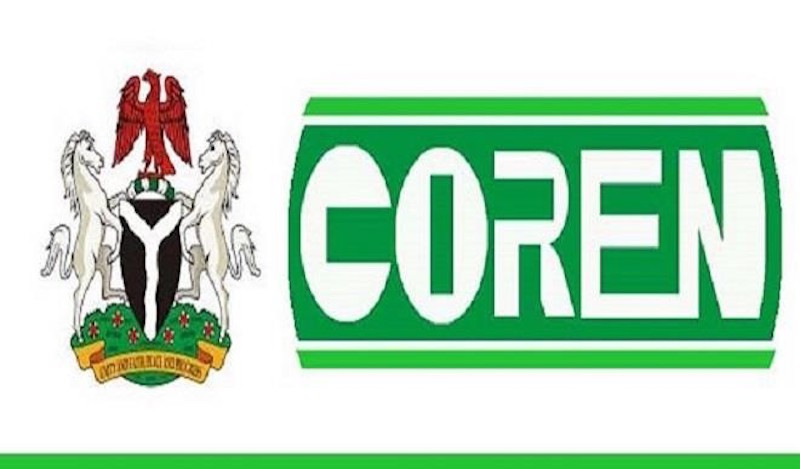
Former Registrar, Council for the Regulation of Engineering in Nigeria (COREN), Prof. Adisa Bello said the council is collaborating with the Independent Corrupt Practices Commission (ICPC), to curb quackery in Nigeria.
Bello stated this in Bauchi on Monday during a public lecture and launching of a magazine by the final year students of Engineering Department, Abubakar Tafawa Balewa University (ATBU), Bauchi.
According to Bello, COREN has an Engineering Regulatory Monitoring Unit visible and working in 29 states of the country.
“If the unit finds anyone culpable of quackery, the person will be handed to the ICPC for further prosecution.
“COREN with the council for regulation of Engineering in Nigeria started in 1970, and its laws were amended in 1992, 2004 and 2018.
“The specific one I’m referring to is the amendment in 2018, which categorically gave COREN the mandate to prosecute offenders of engineering,” he said.
He warned that anybody that was not a registered practitioner in engineering and practicing engineering would be prosecuted by COREN.
“And COREN is doing everything humanly possible to ensure that this is done. COREN currently has a memorandum of Understanding with the Independent Corrupt Practices Commission, and this commission is doing everything possible to ensure that offenders are prosecuted,” he said.
Bello, also a lecturer in the department of Mechanical Engineering, ATBU, recounted how a multi-billion Naira 21 storey building collapsed in Lagos, where COREN did investigation, after which some engineers were found wanting and handed over to the ICPC for prosecution.
“COREN has an investigative panel and once this panel establishes that someone is culpable, it takes you to the ICPC and then straight to the court.
“In my day, we normally write examinations for qualifications.
”We have a situation currently where an individual came with a fake result and we called on the ICPC and they have done all their investigations, and found the person culpable and right now he is under prosecution,” he said.
The don called on higher institutions and academics to ensure that all engineering programmes were properly accredited by the National University Commission (NUC) and COREN.
In a paper entitled: Smart Cities and the role of Engineering and Technology in building the Urban future, Dr. Ibrahim Ikara, Head of Department, Civil Engineering, ATBU, said engineers played a critical role in smart cities.
Ikara said that this could be through the design of modern infrastructure, disaster resilient systems and eco-friendly neighborhoods.
Represented by Muhammad Suleiman, the don listed some of the challenges of building smart cities in developing nations to include infrastructure deficit, limited funding, and low level of digital literacy among citizens.
He urged policymakers to prioritise Science, Technology, Engineering and Mathematics (STEM), to achieve the set goals.
Education
Afe Babalola Canvasses Better Education Sector to Check Insecurity
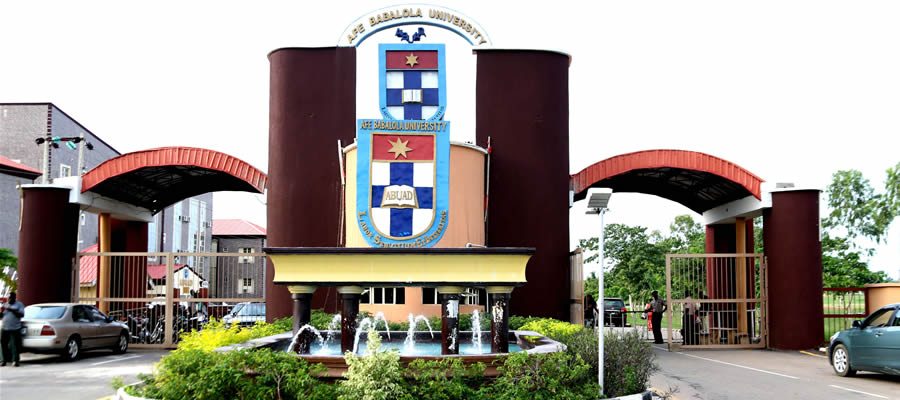
Founder of Afe Babalola University, Ado-Ekiti (ABUAD), Afe Babalola, has identified Nigeria’s declining educational standards as a key driver of the country’s escalating crime rate.
The legal luminary spoke recently during a courtesy visit by a delegation from Ekiti State University (EKSU), led by its Vice-Chancellor, Prof.
Joseph Babatola Ayodele.According to him, “half education is more dangerous than no education.
Many of those engaged in criminal activities today are products of a failing educational system. We must urgently rewrite Nigeria’s educational narrative to foster national development and security.”Babalola challenged policymakers, institutions, and stakeholders to prioritise research grants, innovation, and academic excellence as critical tools for national progress.
In her welcome address, ABUAD’s Vice-Chancellor, Prof. Smaranda Olarinde, lauded Babalola’s visionary leadership, crediting him for establishing the university as a trailblazer in agriculture, pharmaceuticals and quality healthcare education and delivery.
She spotlighted the peerless and paperless ABUAD Multi-System Hospital, which leading healthcare stakeholders have endorsed as the “Well-equipped hospital in Sub-Saharan Africa” as the nation’s antidote to medical tourism.
Taking cognisance of the under-representation of women in the visiting EKSU delegation, the Vice Chancellor canvassed greater gender balance in leadership, just like in ABUAD, where the Vice Chancellor, Registrar and the Librarian are ladies among several leaders in the 15-year-old university.
Responding, the visiting VC praised Babalola as “an unrepentant philanthropist and proud alumnus, who constantly adds value to society.”
He expressed admiration for ABUAD’s state-of-the-art infrastructure, and called for deeper collaboration between the two institutions in agriculture, research and student exchange programmes.
“We have much to learn from ABUAD Farm. With 14 hectares of tomato farms at EKSU ready for harvest, we recognise the need to deepen expertise in agriculture, a vital sector for Nigeria’s future,” Ayodele remarked.
Education
JAMB Inaugurates Special Committee on Examination Infraction

The Joint Admissions and Matriculation Board (JAMB) has inaugurated a special committee to investigate cases of technology-driven malpractice detected during the 2025 Unified Tertiary Matriculation Examination (UTME).
Inaugurating the 23-member committee in Abuja yesterday, JAMB’s Registrar, Prof.
Ishaq Oloyede, expressed concerns over the rising sophistication in perpetrating exam fraud.Oloyede revealed that the results of 6,458 candidates remained under investigation for alleged involvement in high-tech cheating.
“This year, we came across a number of strange things and we felt that it would be better if we expand our resources.
“We believe that God has endowed this nation with a lot of resources that we can tap from,” Oloyede said.
He noted that malpractices had evolved beyond traditional schemes into “technologically sophisticated forms,” including multiple cases of biometric and identity fraud by some accredited CBT centres and candidates.
Oloyede stressed the need for urgent action to protect the credibility of examinations.
“Examination malpractice is something that we must fight with every pinch of blood in our veins.
“This is because unchecked fraud could harm several sectors and tarnish Nigeria’s image,” he said.
The registrar disclosed that while 141 cases of “normal” exam malpractice had been sent to JAMB’s disciplinary committee, the committee would handle the “extraordinary infractions,” such as image blending, albinism falsification, finger pairing, and attempts to breach some CBT centres’ Local Area Network.
He listed the terms of reference of the committee to include: Investigate all the cases of image blending, finger blending, false claim of albinism and result falsification in the 2025 examination.
“Identify the methods, patterns, tools, and technologies used to perpetrate this infraction.
”Review current examination and registration policies and recommend improvements,” he said.
Other terms of reference, he said, are to determine the culpability or otherwise of each of the 6,458 suspected candidates whose results, excluding the albinism group, are still being withheld, among others.
“We have chosen three weeks because justice delayed is said to be justice denied.
“In about four weeks, admission will close. And we believe that those who are found not to be guilty should have the opportunity,” he added.
Responding, the committee chairman Dr. Jake Epele, thanked Oloyede’s leadership and pledged the committee’s commitment and dedication to the assignment.
“Examination malpractice is not just a breach of rules. It is a direct assault on integrity, merit, and the future of our nation’s youth.
“The task before us is therefore a sacred one. I believe that everyone in this committee, you don’t have a committee job. You have a call from God Almighty.
“The call is to defend the credibility of our examination, restore public confidence, and ensure that diligence and honesty remains the true pathway to opportunity,” he said.
Members of the committee include Prof. Muhammad Bello, Prof. Samuel Odewummi, Prof. Chinedum Nwajiuba, Prof. Tanko Ishaya, Prof. Ibe Ifeakandu, and Police Commissioner Fatai Owoseni (rtd.)
Others are: Dr Chuks Okpaka of Microsoft Africa, and the President of the National Association of Nigerian Students, among others.

